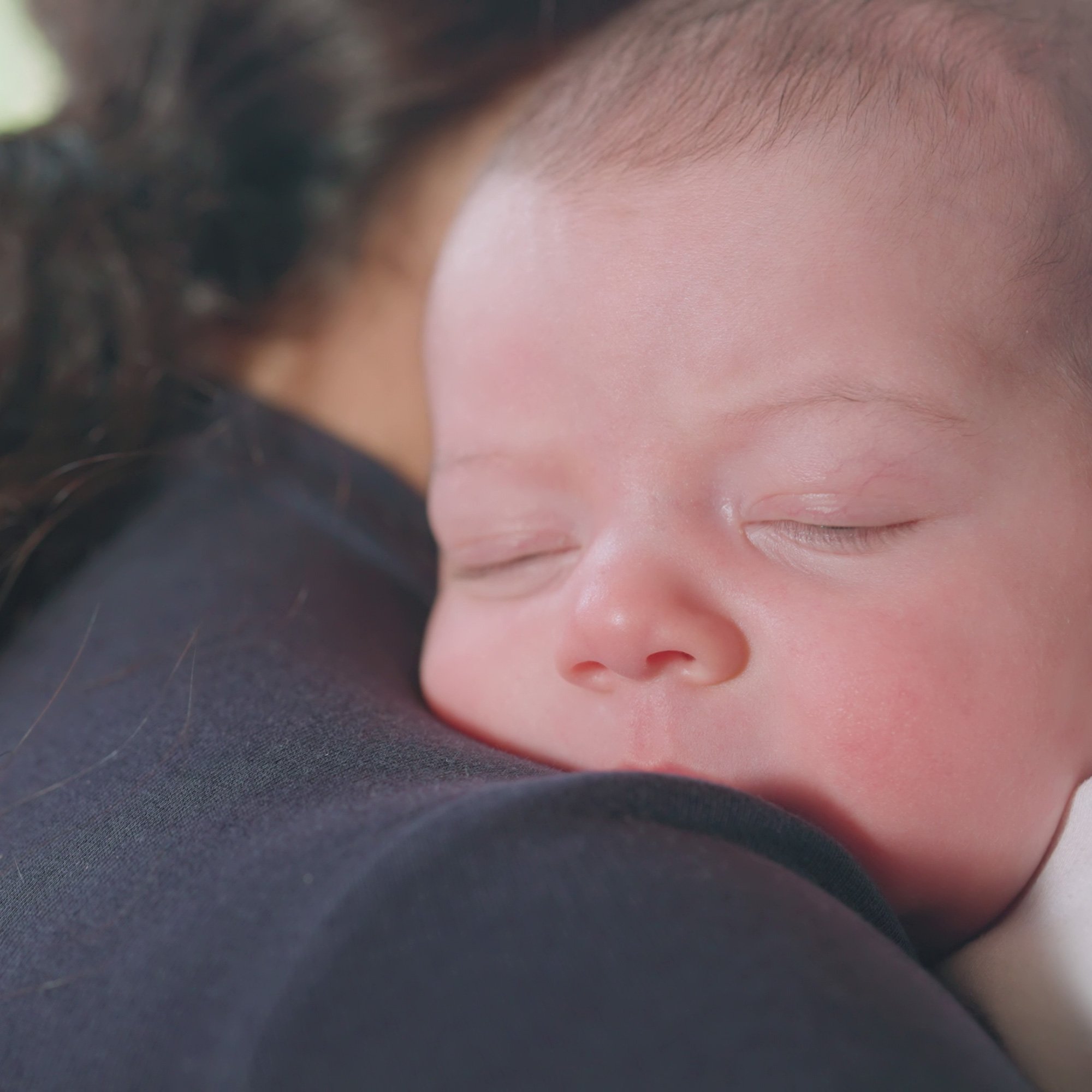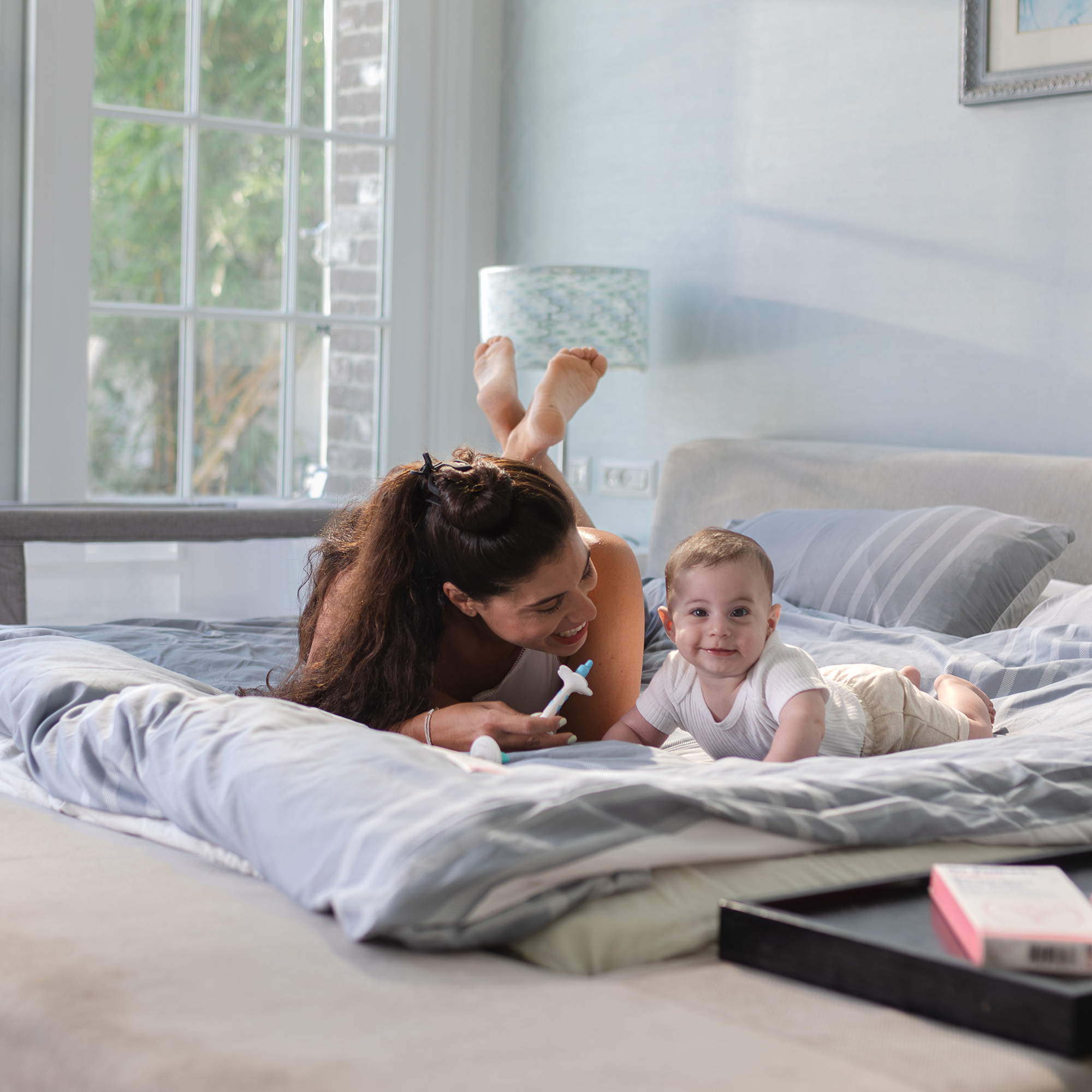Ear infections can significantly impact your baby's sleep patterns. They may wake up more often at night, take shorter naps, struggle to fall asleep, and wake up early in the morning.
When a baby with an ear infection lies down, the fluid pressure from the infection worsens, making it hard for them to fall asleep. They might toss, turn, cry, or wake up frequently at night. This can be frustrating for both the baby and the parents.
The National Institute of Health claims five out of six children will experience at least one ear infection before their third birthday.

Signs of Ear Infection
Although it’s hard to know if your baby is crying because he or she is hungry, sleepy, teething, or something else, some symptoms associated with ear infection are:
- Irritability: Babies with ear infections often exhibit more crankiness and irritability than usual.
- Pulling at the Ears: This is a classic sign of ear pain in infants.
- Sleep Disturbances: Ear pain can lead to frequent awakenings, restlessness, and difficulty falling asleep.
- Fever: Fever is a common symptom of ear infections.
- Fluid Drainage from the Ear: You may notice fluid draining from your baby's ear.
Why Ear Infections Affect Sleep
Imagine your ear being filled with water and the pressure slowly building up. It would feel uncomfortable, right? That’s similar to what happens during an ear infection. Fluid builds up inside the ear, causing pressure and pain.
This happens when a virus or bacteria infects and traps fluid behind the eardrum. The pressure buildup can cause intense pain, especially when a baby lies down.

Tips to Soothe a Baby with an Ear Infection
Here are some strategies to comfort a baby with an ear infection:
- Elevate the Head: Use a wedge pillow to prop up your baby’s head and reduce pressure on the ears. This can help alleviate some of the discomfort and promote drainage.
- Pain Relief: Pain relievers such as acetaminophen or ibuprofen are often used, but always consult your pediatrician about the appropriate pain relievers for your baby.
- Homeopathic Solutions: Many parents take a more natural route and use homeopathic medicines for their children. But consult a pediatrician before you give your child any homeopathic medicine.
- Create a Calm Environment: Keep the room dark, quiet, and cool to promote restful sleep. A soothing environment can help reduce stress and discomfort for your baby.
- Offer Frequent Feedings: Small, frequent feedings can help soothe a baby and reduce discomfort. Breast milk or formula can provide comfort and hydration.
When to See a Doctor for a Baby’s Ear Infection
It's crucial to consult a healthcare provider if:
- Your baby's symptoms persist for more than a few days.
- Your baby has a fever.
- Your baby shows signs of severe distress.
Early diagnosis and treatment can help alleviate your baby's discomfort and prevent complications. By recognizing the signs and seeking medical advice, you can help your baby feel more comfortable and get the rest they need to recover.
Frequently Asked Questions (FAQ)
How do I know if my 4-month-old has an ear infection?
Signs include tugging at the ear, irritability, trouble sleeping, and sometimes fever. If these symptoms persist, consult a pediatrician.
Why won’t my baby sleep with an ear infection?
The pressure and pain from the infection increases when lying down, making it uncomfortable for your baby to sleep.
What can I do to help my baby sleep during an ear infection?
Elevate their head, use doctor-recommended pain relief, and create a quiet sleep environment to help ease discomfort.